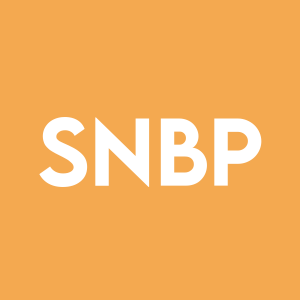Sun BioPharma, Inc. to Participate in the 11th Annual Craig-Hallum Alpha Select Conference
Sun BioPharma (Nasdaq:SNBP) announced its participation in the 11th Annual Craig-Hallum Alpha Select Conference on November 17, 2020. Management will engage in one-on-one meetings with registered investors. The company develops SBP-101, a polyamine analogue targeting pancreatic cancer, which has shown potential tumor growth inhibition without worsening chemotherapy-related side effects. Sun BioPharma is committed to addressing urgent medical needs in pancreatic cancer, collaborating with several prestigious institutions for clinical studies.
- None.
- None.
MINNEAPOLIS, Nov. 10, 2020 (GLOBE NEWSWIRE) -- Sun BioPharma, Inc. (Nasdaq:SNBP), a clinical stage biopharmaceutical company developing disruptive therapeutics for the treatment of patients with pancreatic cancer, today announced it will participate in the 11th Annual Craig-Hallum Alpha Select Conference to be held virtually on Tuesday, Nov 17, 2020. Management will host one-on-one meetings with investors who are registered to attend the conference. For more information about the conference or to schedule a virtual one-on-one meeting with management, please contact your Craig-Hallum representative. Alternatively, please contact James@HaydenIR.com .
About SBP-101
SBP-101 is a proprietary polyamine analogue designed to induce polyamine metabolic inhibition (PMI) by exploiting an observed high affinity of the compound for the exocrine pancreas and pancreatic ductal adenocarcinoma. The molecule has shown signals of tumor growth inhibition in clinical studies of US and Australian metastatic pancreatic cancer patients, suggesting complementary activity with an existing FDA-approved chemotherapy regimen. In clinical studies to date, SBP-101 has not shown exacerbation of the typical chemotherapy-related adverse events of bone marrow suppression and peripheral neuropathy. The safety data and PMI profile observed in Sun BioPharma’s current clinical trial provides support for continued evaluation of the compound in a randomized clinical trial.
About Sun BioPharma
Sun BioPharma Inc. is a clinical-stage biopharmaceutical company developing disruptive therapeutics for patients with urgent unmet medical needs. The Company’s initial product candidate is SBP-101 for the treatment of patients with metastatic pancreatic ductal adenocarcinoma, the most common type of pancreatic cancer. Sun BioPharma Inc. is dedicated to treating patients with pancreatic cancer and fully exploring SBP-101’s potential for efficacy in combination with other agents and in treating other types of cancer. SBP-101 was invented by Raymond J. Bergeron, Ph.D., a Distinguished Professor Emeritus at the University of Florida. Sun BioPharma has scientific collaborations with pancreatic disease experts at Cedars Sinai Medical Center in Los Angeles, the University of Rochester in New York, Scripps MD Anderson Cancer Center in San Diego, California, the University of Florida, the Austin Health Cancer Trials Centre in Melbourne, Australia, the Ashford Cancer Centre in Adelaide, Australia, the Blacktown Cancer and Haemotology Centre in Sydney, Australia and the John Flynn Private Hospital in Tugun, Queensland, Australia. The Company’s independent Data Safety Monitoring Board (DSMB) is Chaired by James Abbruzzese, MD, Professor of Medicine, and Chief, Division of Medical Oncology at Duke University School of Medicine. Professor David Goldstein, FRACP, Senior Staff Specialist at the Prince Henry & Prince of Wales Hospital / Cancer Care Centre in Sydney, Australia is Co-Chair of the DSMB. Further information can be found at: www.sunbiopharma.com. Sun BioPharma’s common stock is listed on the Nasdaq Capital Market under the symbol SNBP.
FAQ
When will Sun BioPharma participate in the Craig-Hallum Alpha Select Conference?
What is SBP-101 and how does it relate to pancreatic cancer?
What are the benefits of SBP-101 compared to traditional chemotherapy?
How can investors schedule a meeting with Sun BioPharma's management during the conference?







